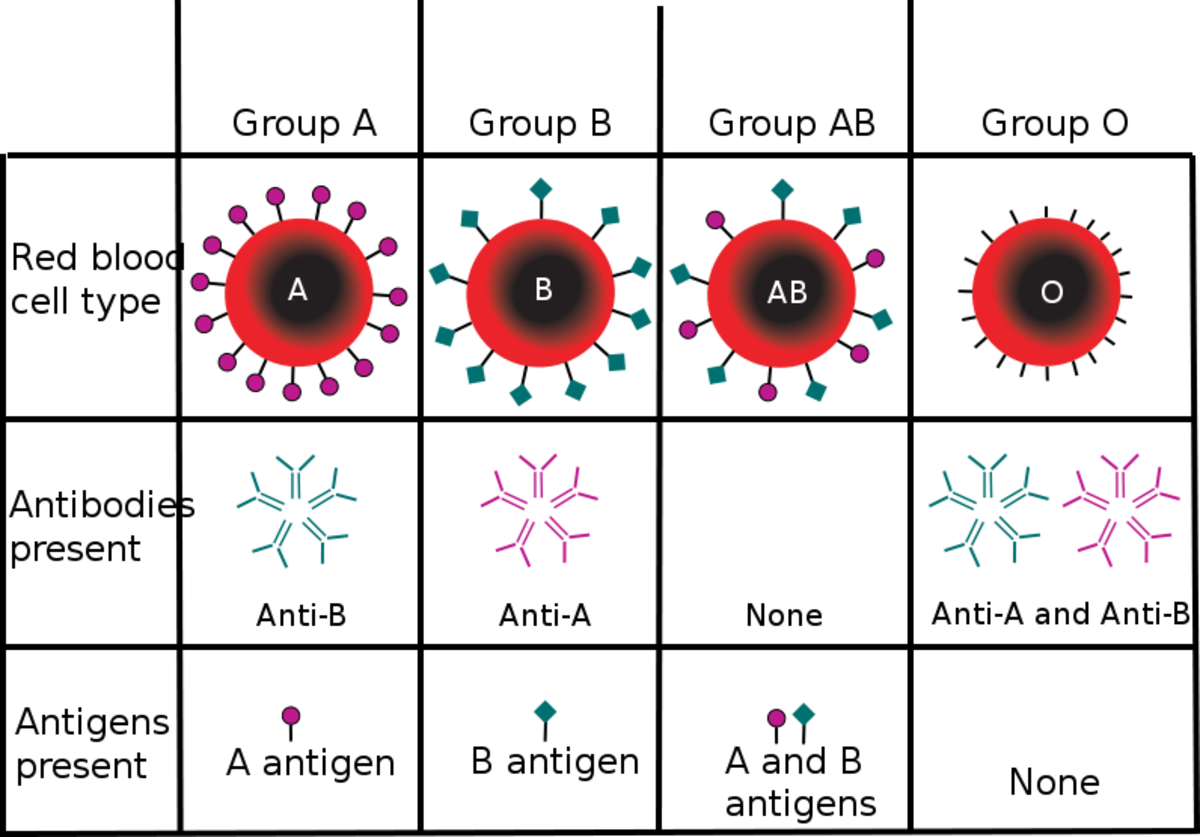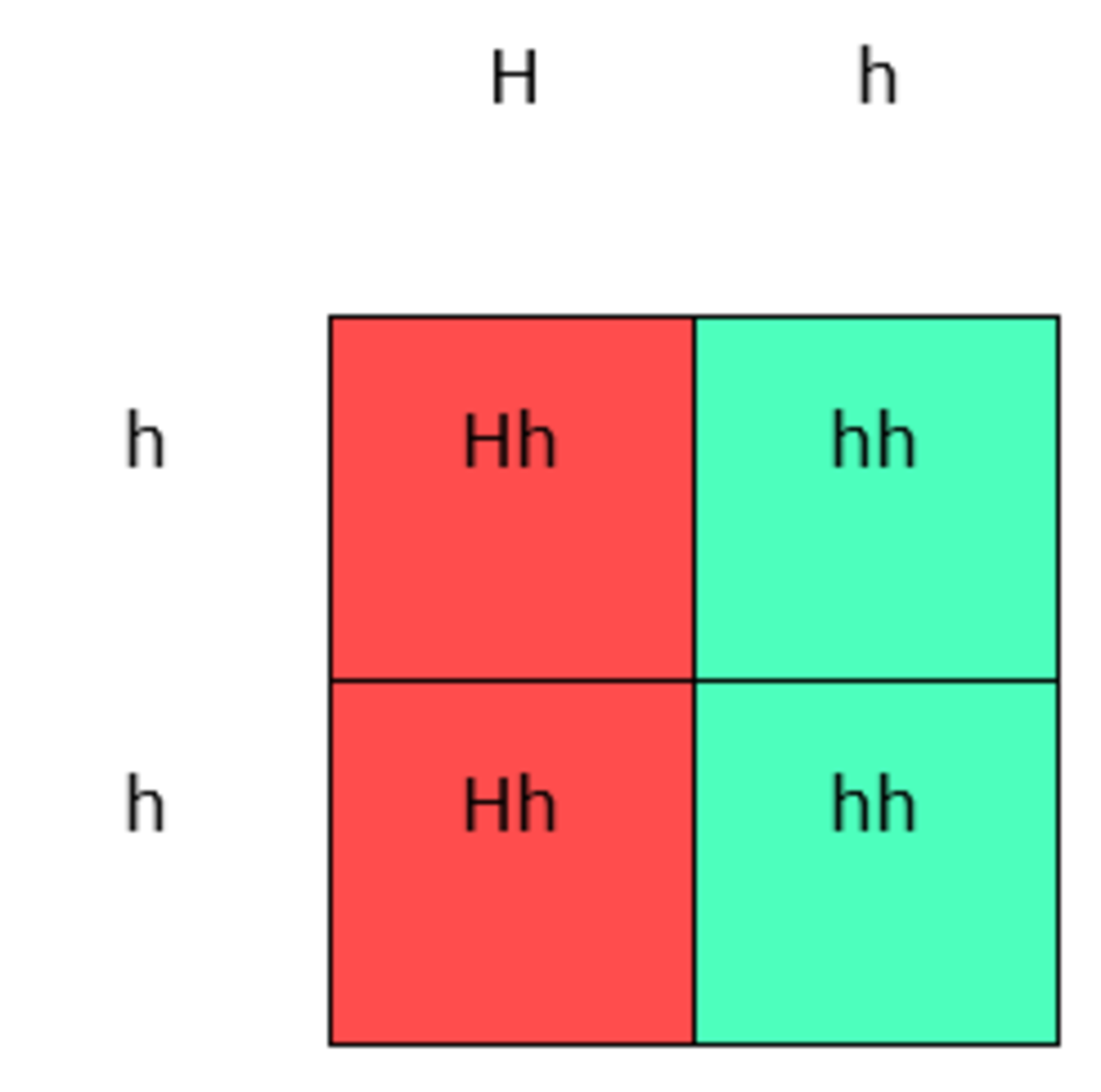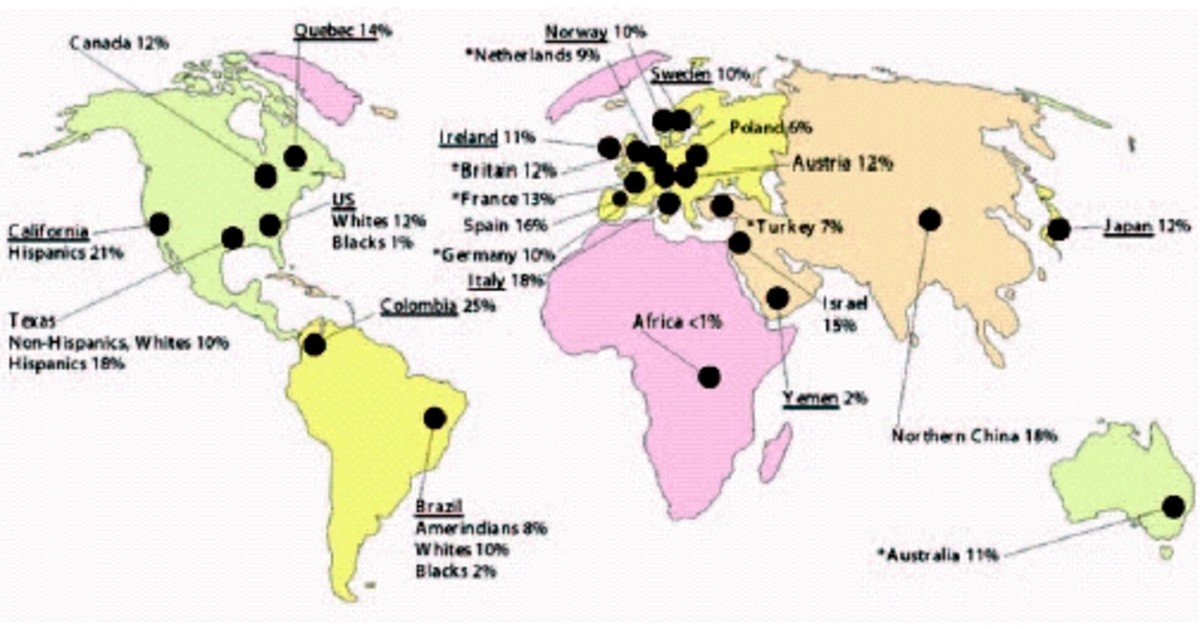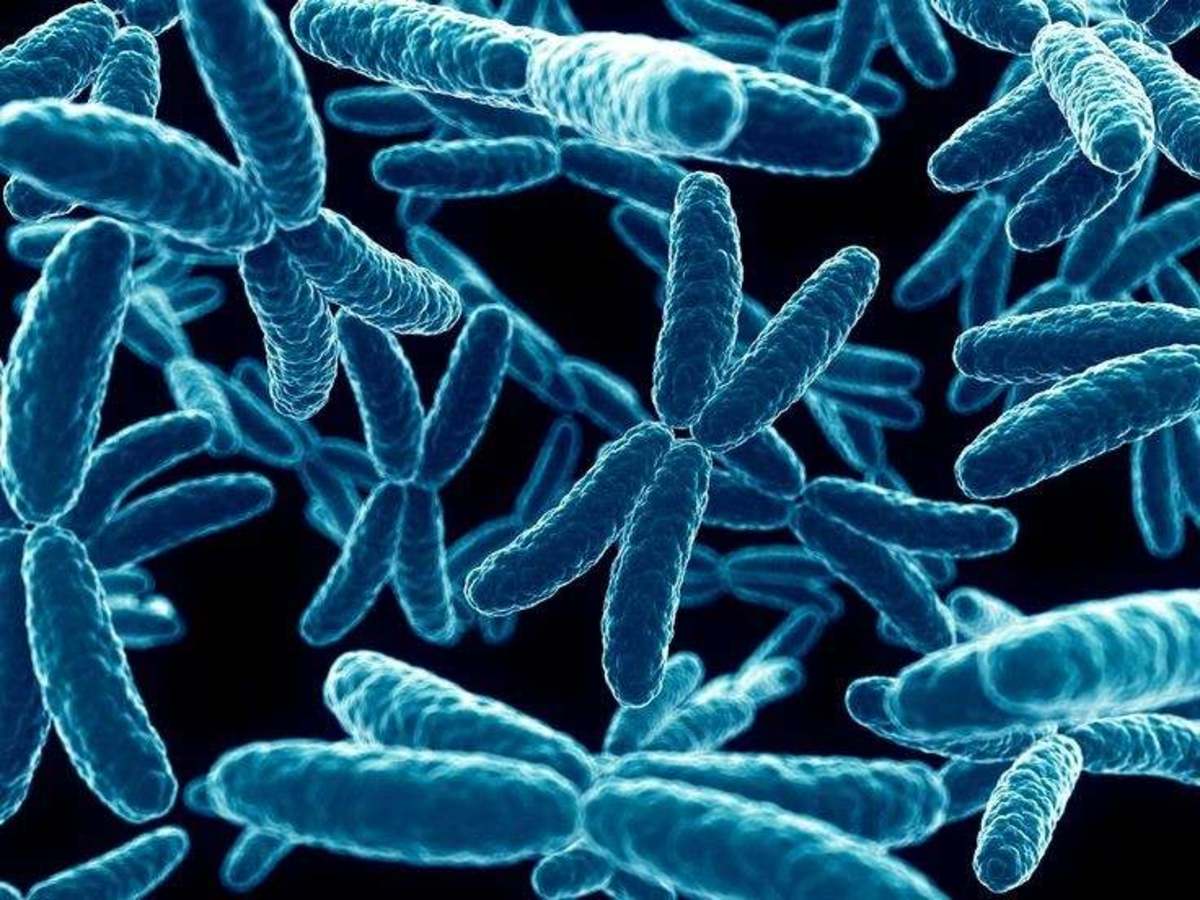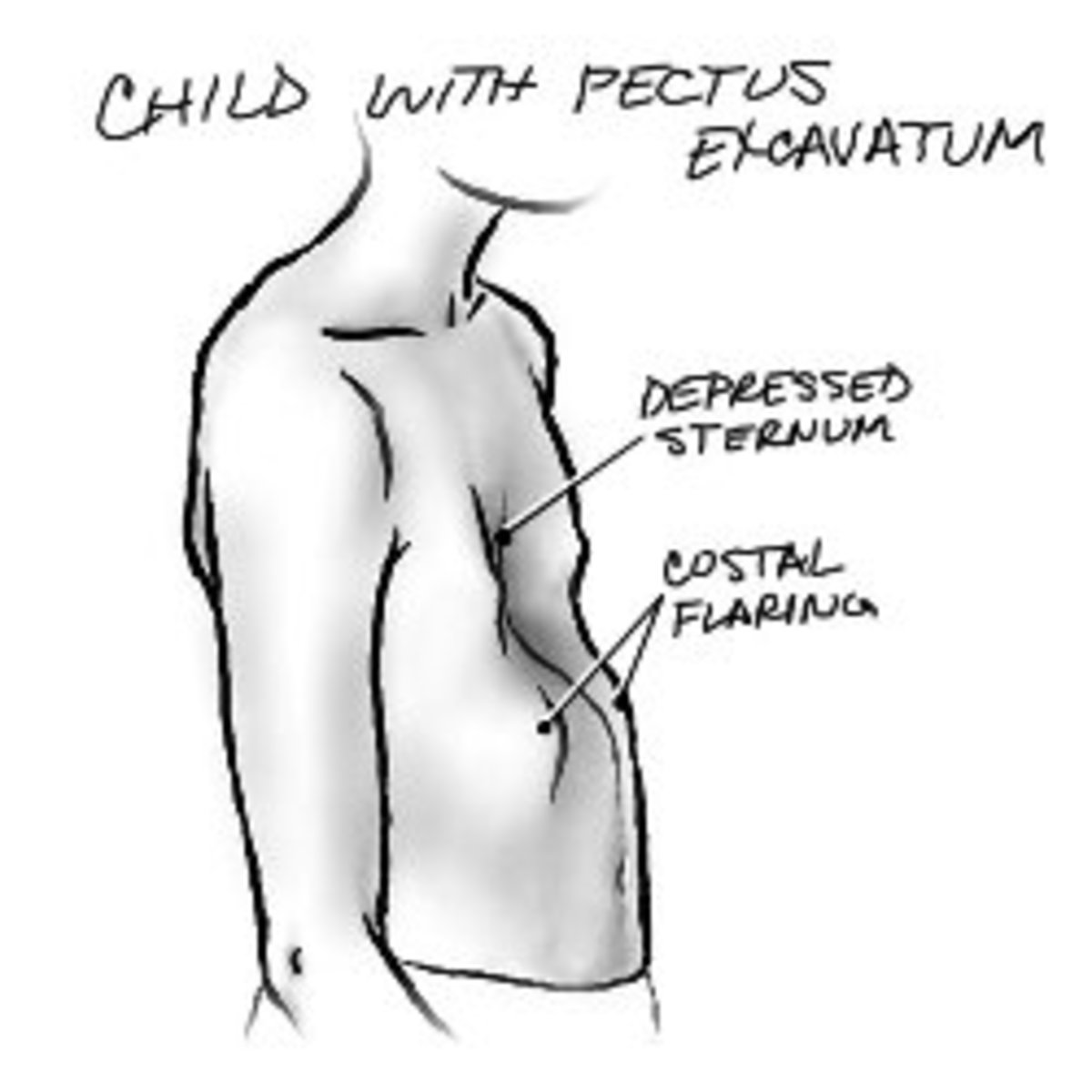Patented Human Genes in the United States

Should Human Genetics Become Big Business?
The American public includes large segments that express their concerns over what looks like declining business ethics in the country.
We hear increasing numbers of reports about the evils of Big Business, e.g. Big Oil, Big Pharma, Big Agriculture (specifically, Monsanto), and now these reports include human genetics. Should human genetics be patented and transformed from a health and medical concern into an essentially big business concern? Many Americans say "no" to that.
The event that triggered my thoughts about this topic occurred a few years ago. I saw an interesting clinical trial advertised at one of our local universities and I went over to the appropriate office to inquire about it. One of the researchers handed me a packet of several pages of consent forms that described objectives and procedures.
By the third page, I was reading about how the university would keep samples of my DNA and run experiments with it without my knowledge of the specific experiments, their purposes, or their outcomes.
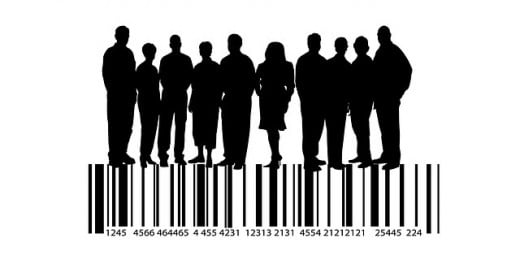
My Information is Not Mine?
Moreover, if a genetic disorder were discovered that might lead to a medical condition or disease, I might never be informed of the fact. I felt this all to be clandestine and invasive, so I declined to participate in the experiment.
I do not like the idea of patenting human genes for exclusive use by only one company or partnership of companies. Certain patents of this nature have already been revoked, as discussed below.
Hearing so many complaints in the 2010s about Monsanto seed patenting, the human gene patent sounds too similar to me. If a patented gene might save a patient from death in, for example, a gene related procedure that entails only an injection, and that patient cannot afford the price, he or she would die. I don't like it personally or professionally.
Neither do I like the fact that a few companies might like to patent certain genes or gene combinations in order to offer the next level of designer infants to couples who can afford them. Beyond the typical dangers of manipulating genetics (reduced lifespans in clones, infertility in offspring, fast-spreading cancers, etc.), the phenomenon of exorbitant pricing is also extant.
Who Owns You?
One eye-opening book own related to genetics as big business is "Who Owns You?" by attorney David Koepsell.It is the first book length document to address the possible and likely probable impact of gene patenting on people and societies.
In reviews of the book, renowned scientist Lawrence Krauss of Arizona State University has stated that the public would be shocked at how much of the human genome is already patented (at least one-fifth, which is 20%). It sounds like science fiction, but is already reality.
Koepsell may be the first writer to broach the subject of DNA property rights. He has applied his interest in science fiction and the phenomenon of science fiction becoming science fact to genetics and gene patenting.
Gene Patent Revoked
From the ACLU:
On June 13, 2013, the U.S. Supreme Court invalidated patents on two genes associated with hereditary breast and ovarian cancer in response to a lawsuit filed by the American Civil Liberties Union and the Public Patent Foundation (PUBPAT) on behalf of researchers, genetic counselors, patients, breast cancer and women's health groups, and medical professional associations representing 150,000 geneticists, pathologists, and laboratory professionals. -- retrieved from http://www.aclu.org/fight-take-back-our-genes on June 21, 2013.
The Supreme Court of the land was unanimous in revoking the patents on the two human genes indicated in the above paragraph. Under the former patents, the Utah organization called Myriad Genetics enjoyed total control and even access to genes BRCA1 and BRCA2 (Breast Cancer 1 and 2), including all research and all product and service pricing related to the genes.
Women could no longer even seek a second opinion in their own cases of diagnosed cancer because of these patents.
The ACLU states that one woman was charged $4000 by Myriad to have a genetic test that looked for a single marker for cancer. Unable to afford the test, the woman waited 18 months until she qualified for a grant with which to pay for testing. She did have the marker gene and was fortunate to not yet have developed cancer. Early testing reduces medical costs and saves lives.
Legally, human DNA can no longer be patented in America, removing control from Myriad.
The Future of Genetic Patents
America may feel safe from patented human DNA and related imaginings of "Frankenbabies", although Genetic Counseling is still a viable discipline that mane prospective parents and potential patients can use.
Much of the public is still against any type of designer baby, but a growing proportion seems to be in favor of genetic testing to determine possible future conditions and diseases lying in the field of one's genetic heritage. In fact, UK's National Health Service would like to offer such testing.
Meanwhile, Monsanto can still patent corn seed and pet owners can still purchase DNA test kits to analyze their favorite dogs for heritage. Many people are angry about the Monsanto patents in that they drive up costs, because of exlusive control.
If you have the chance, see the related film At Any Price, starring Dennis Quaid. He plays a farmer and seed salesman in the Midwest for a company that patents seeds for exlusive sale. The agricultural seed market is cutthroat in this farmers state. Some of the local salesmen, who are all farmers as well, try to save seed from year to year with bad results - they are visited by governmental and corporate Men In Black. Some farmers even die.
Is patented corn seeds are so dangerous, we are fortunate to no longer have patented human genes, in which the stakes would be even higher.
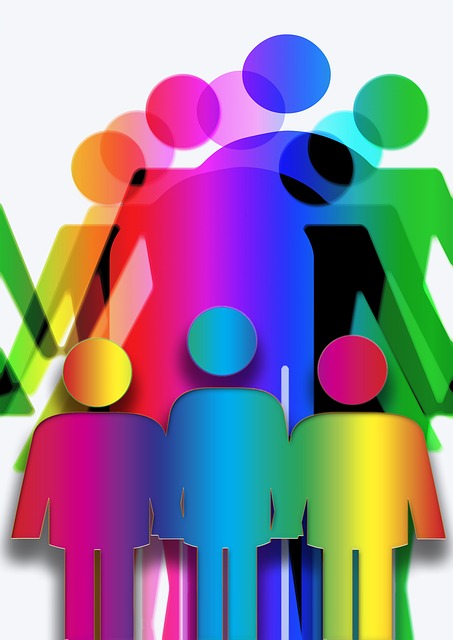
Sources
- DNA Patent Database.
- Greely, H. Why Precipitous, Population-Wide Whole-Genome Sequencing Is Probably Inevitable. http://www.law.virginia.edu/sites/default/files/mp3/13_05_23_genetics_greely.mp3 Retrieved June 26,2018.
- National Institutes of Health; National Human Genome Research Institute. Intellectual Property and Genomics; October 2017. https://www.genome.gov/19016590/intellectual-property/ Retrieved June 29,2018.
- Third National Conference on Genetics, Ethics and the Law. http://www.law.virginia.edu/news/2013_spr/genetics_conference.htm. Retrieved June 27,2018.

© 2013 Patty Inglish MS MPH


